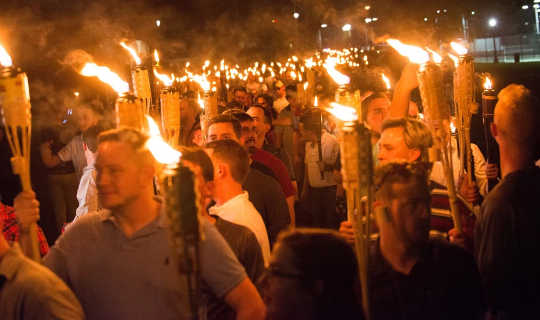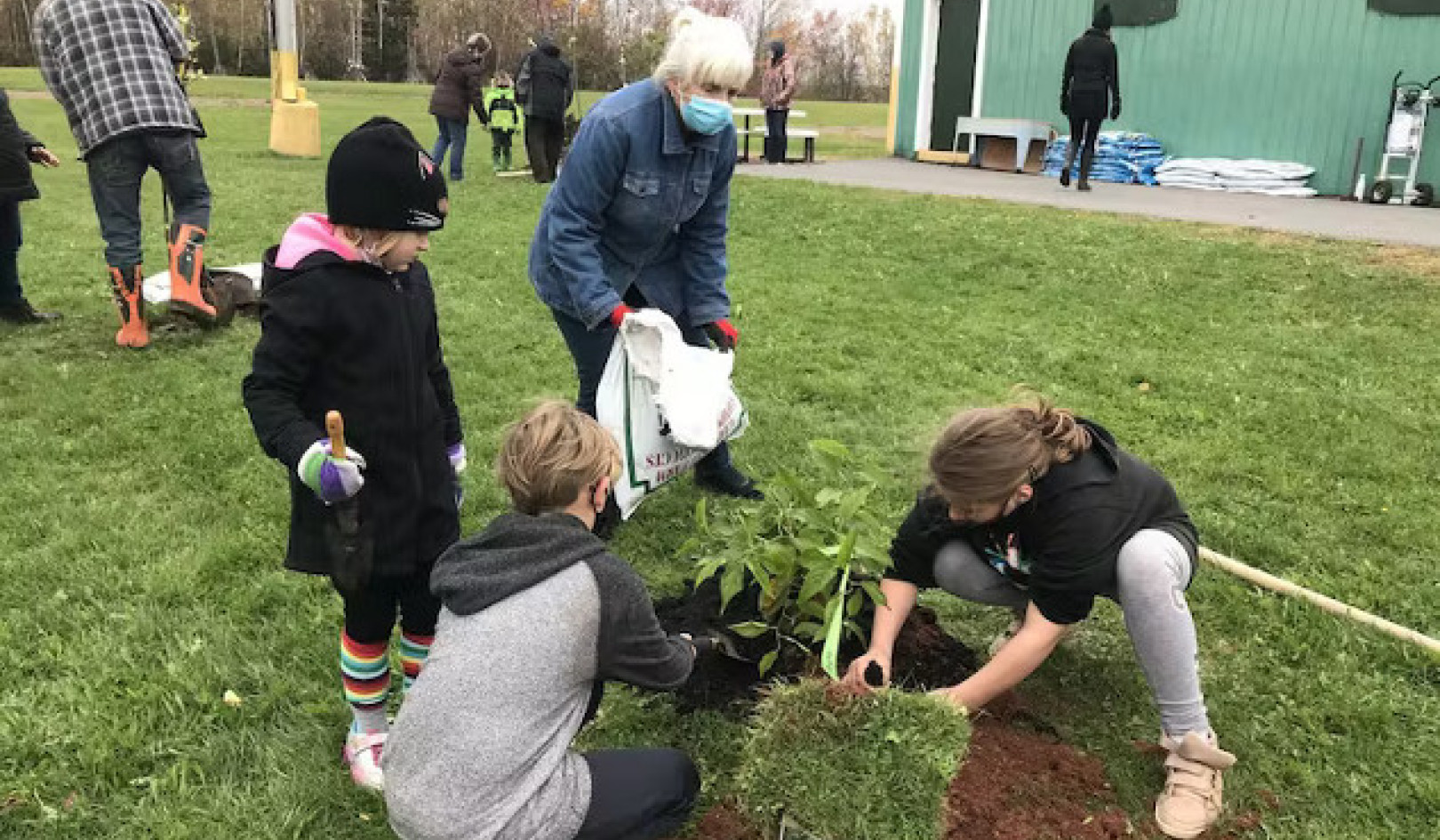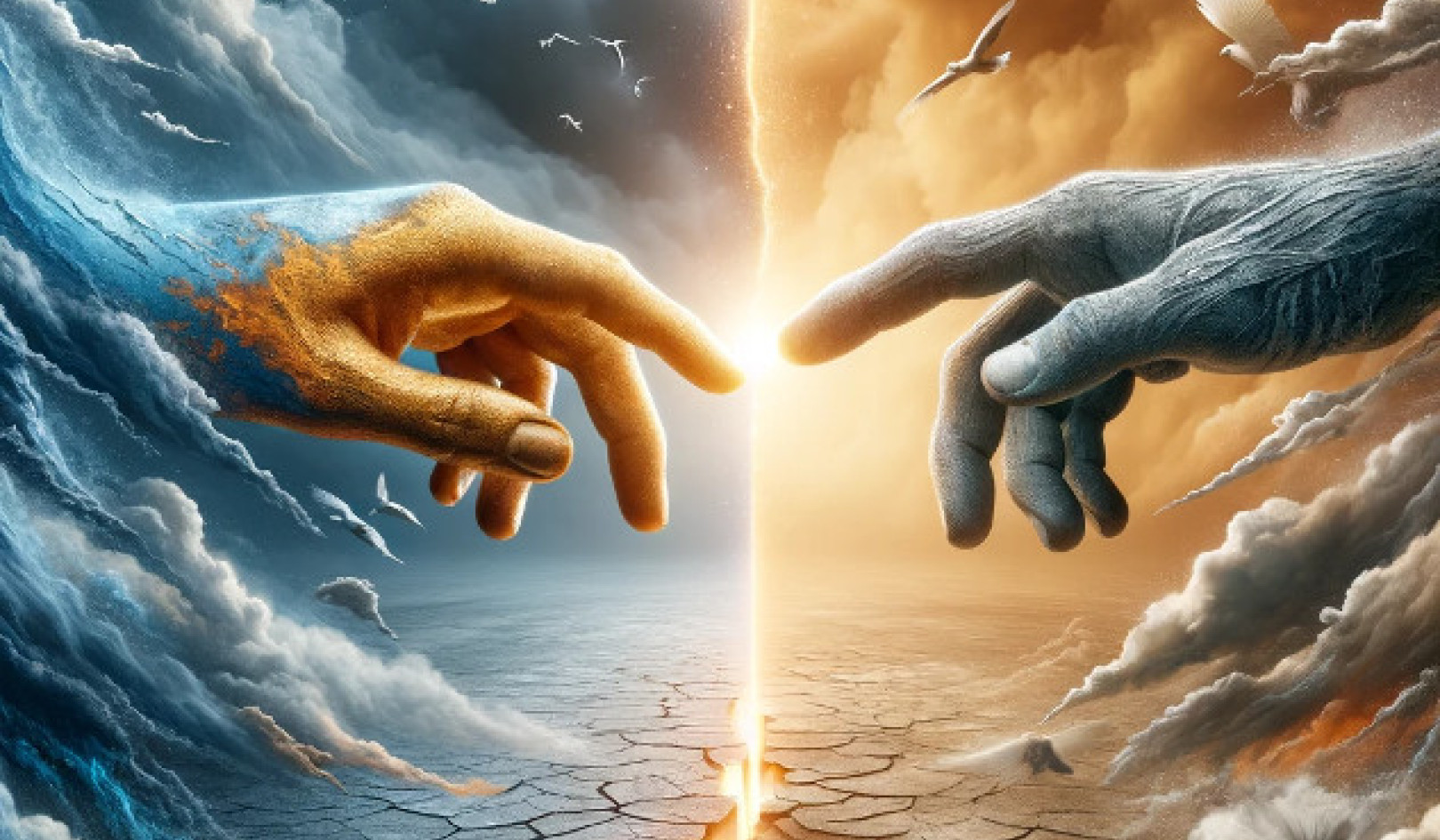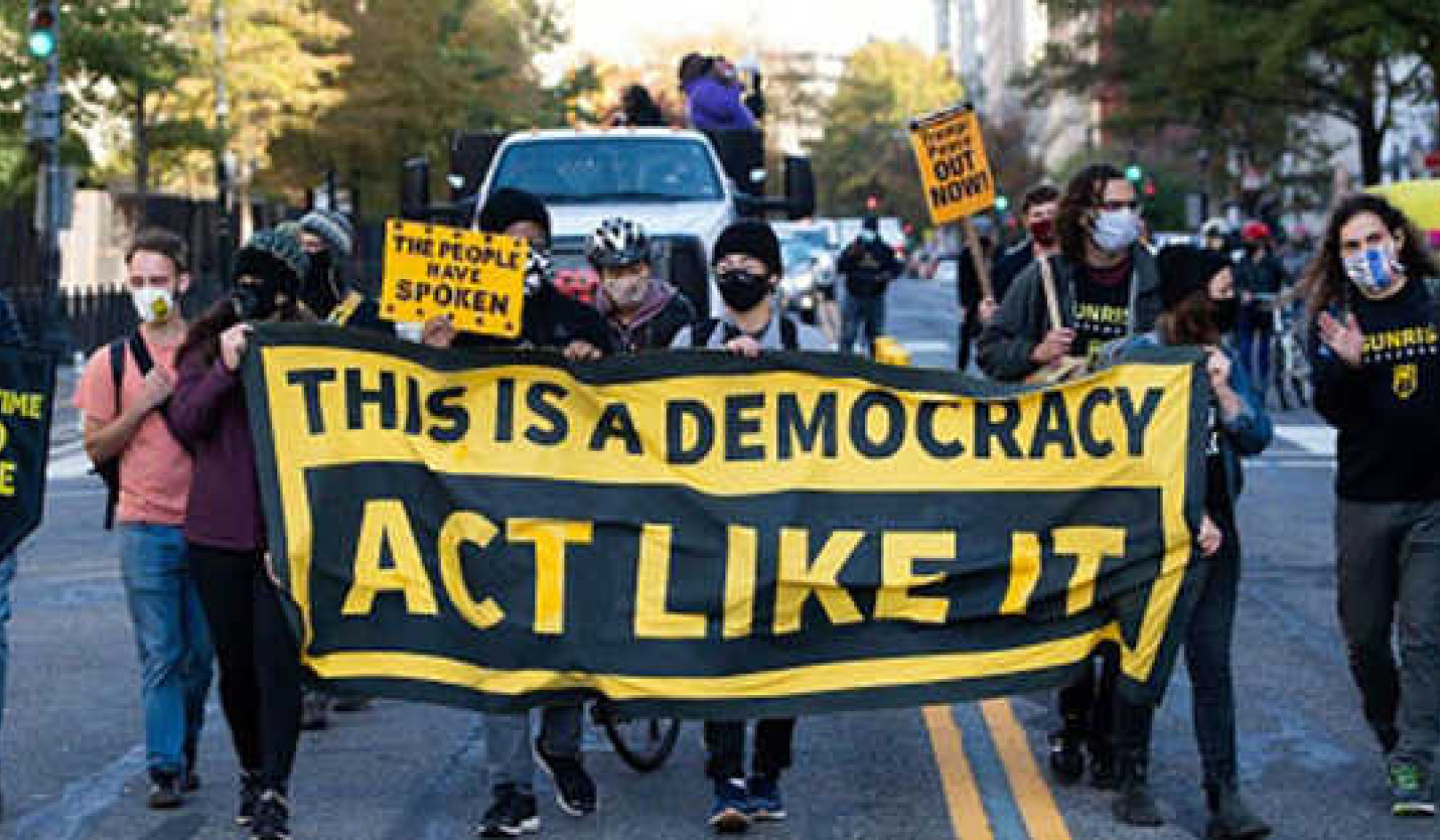
Ever since the financial crisis of 2008, American society has become increasingly divided. In among its deep fissures, the far right has found a place to incubate and speak out.
Declining demographically and struggling economically, this voice shouts out a violent identity crisis of class, whiteness, and masculinity. So how did that voice get so loud?
In a capitalist society, the balance of power is linked to the financial rewards accumulated by historically dominant groups. The human face of American capitalism has long been represented by managerial white men in finance at the top, with unemployed or imprisoned black men at the bottom.
Over the past 40 years this has had dramatic economic, social, and political consequences on US society. Social norms generating varying wealth and income associated with different racial groups leads to group inequality and the exacerbation of stratified incomes.
Politically, the impact of an increasingly stratified society leads to the rise of far right movements. Research across 20 advanced countries shows that in the ten years after a financial crisis, far right parties tend to increase their voting share by 30%. Blame for economic woes is placed at the feet of minorities and foreigners. (Or, in the case of the 2016 US presidential campaign, anyone implicated in the conspiracy of nefarious “globalist” elites.)
In 2018, the reality of the stratified society in the US is that black and white groups still pray in different churches, live in different neighbourhoods, and have unequal access to health, education and job opportunities – even after a black couple spent eight years in the White House.
This state of inequality is symptomatic of the way discriminatory behaviour reproduces itself in unconscious ways through individual and collective action.
The rise of the alt-right voice has brought to light the fact that group biases and behaviour can overtake individual choices. The violent events seen in Charlottesville, Virginia, in the summer of 2017 demonstrate how the gathering momentum of herd behaviour can result in extreme behaviour by individuals. But to what extent are individual actions influenced by our membership of groups, and how much comes from our inner “true selves”?
{/youtube}https://youtu.be/ZN7vm9mIPBs{/youtube}
Across the social sciences, psychology and neuroscience, there is evidence that membership of a group can exacerbate the effect of unconscious biases on individual action. Psychologist Daniel Kahneman argued that what we feel in the moment in reaction to our interaction with our immediate environment pretty much reflects what we experience.
When we burn ourselves, we feel pain. When we listen to a song we may feel happy or sad. When we talk to someone, we feel a connection in that moment.
But when we reflect on this experience later on, cognitive biases (such as prejudice) kick in and affect our memory of these feelings – as if we are looking back on them with bias-tinted spectacles. As a result, since future individual actions are based on these cognitive biases, membership of a group which is marked by certain prejudices strengthen those prejudices in individuals.
Social movement
This psychological phenomenon sustains itself over time, bringing increased inequality which itself incurs significant economic and human costs.
{youtube}https://youtu.be/XgRlrBl-7Yg{/youtube}
It also reveals a harmful social hypocrisy in people’s daily interactions with each other. The connection individuals experience on a one-to-one basis becomes lost within group membership. Such social hypocrisy stops us bridging the gap between the experience of our true self and the “bias-tinted” experiences as a member of a group.
Law professor Ekow N. Yankah explored this social hypocrisy in an essay titled Can my children be friends with white people?. His view is that true friends trust one another, and act to preserve each other’s well-being – they preserve the live connection between people. But the power dynamics of the historical divide between black and white people, and the group boundaries it has created, disconnects people instead. It ignores the idea that “we live together and not simply beside one another”.
The US experience of this growing divide between groups reveals the effects of individuals denying their similar internal experiences and focusing on their external differences.
We live in a world of fundamental uncertainty, in which people all too easily call upon the perceived boundaries of group membership, such as skin colour, accent, or body shapes, to gain a sense of security. They do this rather than focusing on the certainty of the live human connection that needs to be preserved.
The rise of the far right, in the US and beyond, shows that awareness of group membership is the most powerful political tool. It can be used to manipulate people’s emotions, their behaviour and choice. But the reverse is also true. Being aware of the ephemeral nature of groups we and others belong to, and how they came to be formed, could also be extremely powerful for positive change.
About The Author
Aurelie Charles, Lecturer in Global Political Economy, University of Bath
This article was originally published on The Conversation. Read the original article.
Related Books:
at InnerSelf Market and Amazon






















